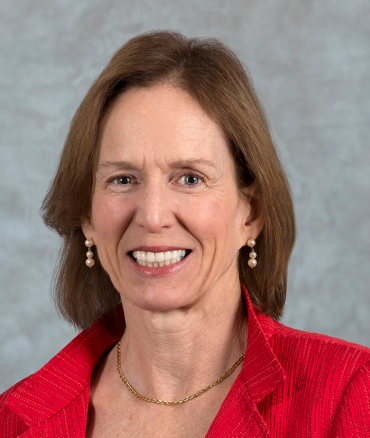
FDA Deputy Director Discusses Initiatives to Advance Biosimilar Use
An overview of activities at the FDA to promote the use of biosimilars was presented by Jacqueline Corrigan-Curay, JD, MD, principal deputy center director for the Center for Drug Evaluation and Research (CDER) at the FDA.
The FDA sees many ways that the biosimilars development and marketing landscape could be improved, according to Jacqueline Corrigan-Curay, JD, MD, principal deputy center director for the Center for Drug Evaluation and Research (CDER) at the FDA.
Corrigan-Curay spoke about the status of FDA biosimilar initiatives at the GRx+Biosims 2021 meeting of the Association for Accessible Medicines.
Biosimilars, lower-cost versions of originator brand biologics, were introduced in the United States in 2015 and have been making a difference for patients, Corrigan-Curay said. As biosimilars drive down the price of biologics, or “molecules,” these agents become more affordable for patients, and the numbers bear out that this is happening, she said. “The introduction of biosimilars in some cases has generated 2% to 4% incremental demand for the (reference drug) molecule.”
Nowhere is this seen more than in oncology, where “there’s been great uptake” of biosimilars, she said. “The recent biosimilar launches of bevacizumab, trastuzumab, and rituximab are set to reach nearly 60% volume share [of the market] by the end of the second year in the market, significantly higher and faster than prior biosimilars, so this is all good news for the American public.”
Corrigan-Curay said the FDA and the Federal Trade Commission remain committed to protect the biosimilar market against unfair competition in the form of false and misleading communication intended to make biosimilars seem inferior to the biologics they reference.
“With respect to the FDA, that has involved issuing guidance on promotional labeling and advertising considerations for prescription biological reference and biosimilar products,” she said, adding that the FTC will review patent settlement agreements between biologics manufacturers to guard against antitrust behavior that impedes fair competition in the marketplace.
Firsts in Biosimilars
The year 2021 has seen a number of firsts for biosimilar approvals. The first “interchangeable” biosimilar was approved, as was the first ophthalmology drug and the first insulin biosimilar. The market now encompasses 21 biosimilars that have been launched out of 31 that the FDA has approved.
Interchangeable biosimilars can be substituted for reference brands at the discretion of the pharmacist, without authorization from the prescribing physician. This designation is unique to the US regulatory process and is considered by manufacturers as a way to differentiate their biosimilars from other biosimilars and gain market share and patient acceptance.
“The first interchangeable biosimilar [
There are 94 active biosimilar development programs at the FDA, meaning potential biosimilars in development that the FDA is tracking for possible approval in the future. But oncology remains the dominant arena where biosimilars have been successful, she noted.
“We know there are still challenges. We do have 10 biosimilars that are not currently marketed. And we know that there’s limited opportunity [for biosimilars] and acceptance outside of oncology. We also know that we may need to improve the product development process as it does continue to be costly and lengthy, and we need to promote competition,” she said.
“Nonetheless, what we continue to see is interest in the biosimilar program; we see an increase in meetings with a peak in 2019. Many of these meetings are for new products; I think we're up to now 46 different reference products that we have met with applicants on,” Corrigan-Curay said.
Education in Biosimilars
A big area in need of attention is educating patient and providers about biosimilars to build trust in the FDA’s certification that these agents are as safe and efficacious as their reference brands. To accomplish this, the FDA is establishing a continuing development program that enables health care professionals to learn about biosimilars through websites, infographics, factsheets, and videos.
“We’ve actually been testing some material for education of health care workers to get feedback on what’s the most effective. We’re now moving into testing educational materials for patients. And we will also be developing curricula for use by health professional schools, medical schools, and nursing schools,” Corrigan-Curay said.
Other things the FDA is working on include better communication with biosimilars companies during the license review process. “We need to enhance our prelicensure inspection communication and clarify when we will use alternate tools [for review and inspection of manufacturing facilities],” she said. “We’re going to be introducing a focused effort to advance the development of interchangeable products.” There will also be pilot programs for improving regulatory decision making and facilitating science-based recommendations for biosimilar development.
“Of course, we can’t do this without good people, so we need our hiring and retention strategy to focus on strategic hiring and retention to world-class technical and scientific staff. Finally, we are a data driven agency, and to really maximize our use of data and the efficiency with which we do that, we need to invest in modern technology to support and streamline drug development and review,” Corrigan-Curay said.
Newsletter
Stay ahead of policy, cost, and value—subscribe to AJMC for expert insights at the intersection of clinical care and health economics.









